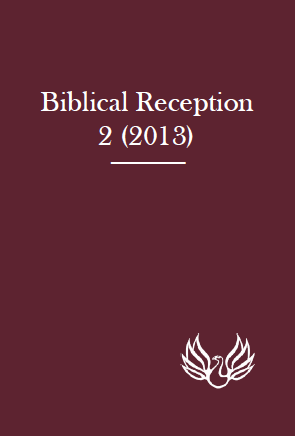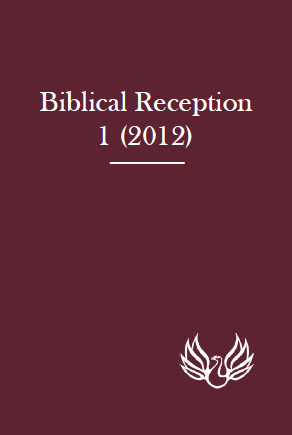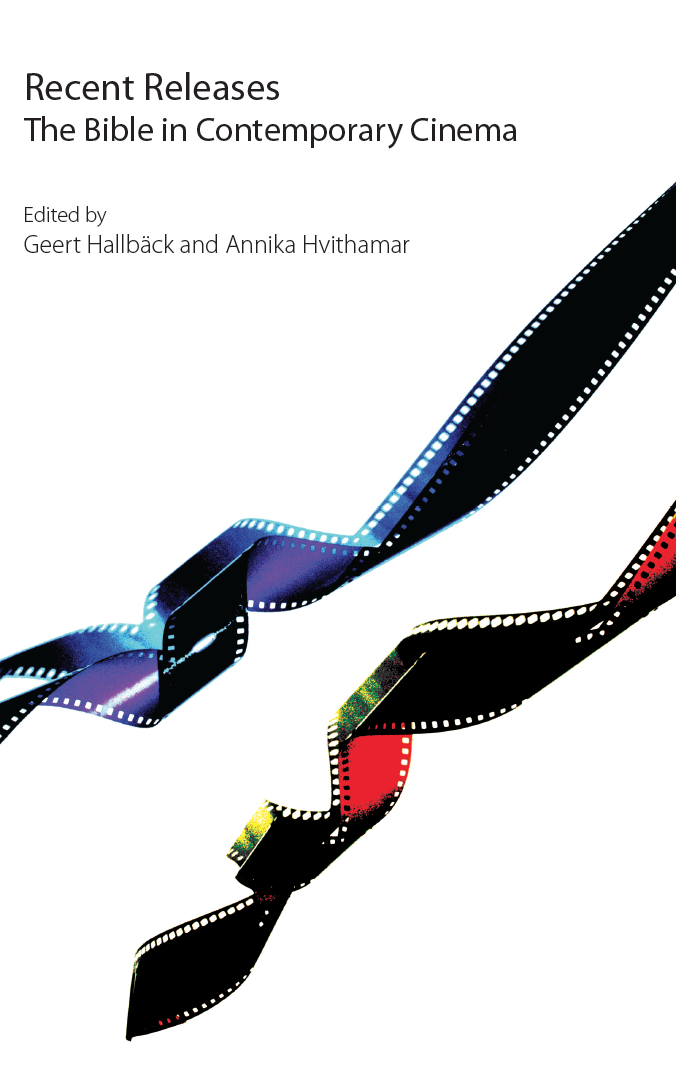‘Good Omens’ and the Bible
Published: Jun 2024
£50.00
Good Omens and the Bible provides a diversely rich collection of considerations of apocalypse and apocalypticism, via responses to the reception of the Bible in the landmark cultural icon that is Neil Gaiman and Terry Pratchett’s Good Omens: The Nice and Accurate Prophecies of Agnes Nutter, Witch (1990). These essays explore the perplexing, captivating, and curious interactions between Good Omens and biblical literature.
Interdisciplinary explorations reveal how both the novel and TV series reflects and explodes contemporary ideas about the end times. Filtering references to biblical apocalypses through the lens of popular culture, Good Omens shines a light on the received interpretations of apocalyptic thinking that resonate in the present, revealing in turn something about ourselves.
Together, these essays open up conversations about how Good Omens makes use of religious ideas about textuality, performance, theodicy, and the role of popular culture in the proliferation of those conversations. This book illustrates the ways in which the novel and series are agents in the continuation of cultural debates about important, wide-ranging theological and biblical issues.
‘Good Omens’ and the Bible
£50.00
Good Omens and the Bible provides a diversely rich collection of considerations of apocalypse and apocalypticism, via responses to the reception of the Bible in the landmark cultural icon that is Neil Gaiman and Terry Pratchett’s Good Omens: The Nice and Accurate Prophecies of Agnes Nutter, Witch (1990). These essays explore the perplexing, captivating, and curious interactions between Good Omens and biblical literature.
Interdisciplinary explorations reveal how both the novel and TV series reflects and explodes contemporary ideas about the end times. Filtering references to biblical apocalypses through the lens of popular culture, Good Omens shines a light on the received interpretations of apocalyptic thinking that resonate in the present, revealing in turn something about ourselves.
Together, these essays open up conversations about how Good Omens makes use of religious ideas about textuality, performance, theodicy, and the role of popular culture in the proliferation of those conversations. This book illustrates the ways in which the novel and series are agents in the continuation of cultural debates about important, wide-ranging theological and biblical issues.
Biblical Reception 2
Published: Oct 2012
£80.00
This is the second volume of the new journal, Biblical Reception (BibRec), published in November 2013. For the first volume, click here.
Our policy for the journal is this. It is high time, we believe, for the new and burgeoning field of the reception of the Bible to have a publication medium of its own. What the biblical text has meant to its readers down the centuries should be as much the subject of scholarly attention as any 'original' meaning.
Our journal is a substantial annual volume covering all kinds of use of the Bible — in art, literature, music, film and popular culture, as well as in the history of interpretation.
Biblical Reception 2
£80.00
This is the second volume of the new journal, Biblical Reception (BibRec), published in November 2013. For the first volume, click here.
Our policy for the journal is this. It is high time, we believe, for the new and burgeoning field of the reception of the Bible to have a publication medium of its own. What the biblical text has meant to its readers down the centuries should be as much the subject of scholarly attention as any 'original' meaning.
Our journal is a substantial annual volume covering all kinds of use of the Bible — in art, literature, music, film and popular culture, as well as in the history of interpretation.
Biblical Reception 1
Published: Oct 2012
£80.00
This is the first volume of a new journal, Biblical Reception (BibRec), published in November 2012.
It is high time, we believe, for the new and burgeoning field of the reception of the Bible to have a publication medium of its own. What the biblical text has meant to its readers down the centuries should be as much the subject of scholarly attention as any ‘original’ meaning.
Our new journal is a substantial annual volume covering all kinds of use of the Bible — in art, literature, music, film and popular culture, as well as in the history of interpretation.
Editorial Board Diane Apostolos-Cappadona (Washington, DC), Alan Cooper (New York), James Crossley (Sheffield), Andrew Davies (Birmingham), Tamara C. Eskenazi (Los Angeles), Philip Esler (Gloucester), Susanne Gillmayr-Bucher (Linz), John Harvey (Aberystwyth), Christine Joynes (Oxford), Carol Newsom (Atlanta), Martin O'Kane (Lampeter), Tina Pippin (Decatur, GA), John F.A. Sawyer (Durham), Reinhold Zwick (Münster).
Biblical Reception 1
£80.00
This is the first volume of a new journal, Biblical Reception (BibRec), published in November 2012.
It is high time, we believe, for the new and burgeoning field of the reception of the Bible to have a publication medium of its own. What the biblical text has meant to its readers down the centuries should be as much the subject of scholarly attention as any ‘original’ meaning.
Our new journal is a substantial annual volume covering all kinds of use of the Bible — in art, literature, music, film and popular culture, as well as in the history of interpretation.
Editorial Board Diane Apostolos-Cappadona (Washington, DC), Alan Cooper (New York), James Crossley (Sheffield), Andrew Davies (Birmingham), Tamara C. Eskenazi (Los Angeles), Philip Esler (Gloucester), Susanne Gillmayr-Bucher (Linz), John Harvey (Aberystwyth), Christine Joynes (Oxford), Carol Newsom (Atlanta), Martin O'Kane (Lampeter), Tina Pippin (Decatur, GA), John F.A. Sawyer (Durham), Reinhold Zwick (Münster).
Recent Releases: The Bible in Contemporary Cinema
Published: Aug 2008
£35.00
The relationship between theology and film has always been a complicated one. When film was invented at the end of the nineteenth century, it quickly gained its place in popular culture, far from the orthodoxies of the scholarly world and of the Church. For the better part of the twentieth century popular cinema was considered off limits for serious studies of Bible and culture. Recently, however, there has been a growing understanding of how the Bible is being used in popular culture —not as a historical document or as an authoritative canon, but as part of the cultural intertext.
Cinema is a vivid example of the role and impact of the Bible in contemporary society. In this well-theorized collection of essays the issue is treated from several angles. Using the methodology of theology, the question of the alleged escapism of popular cinema is explored. Using the methodology of media studies, the impact of the media on religious communication is analysed. And, using the methodology of religious studies, the influence of the cinema in the creation of new religions, religious behaviour and religious institutions is investigated.
In addition, the book offers fruitful analyses of the cinematic use of biblical themes such as Eden, salvation, Mary Magdalene and Jesus —as well as of the cinematic application of ethical themes such as truth-telling, personal growth, suffering, the accomplishment of good and the creating of meaning for human beings.
Recent Releases: The Bible in Contemporary Cinema
£35.00
The relationship between theology and film has always been a complicated one. When film was invented at the end of the nineteenth century, it quickly gained its place in popular culture, far from the orthodoxies of the scholarly world and of the Church. For the better part of the twentieth century popular cinema was considered off limits for serious studies of Bible and culture. Recently, however, there has been a growing understanding of how the Bible is being used in popular culture —not as a historical document or as an authoritative canon, but as part of the cultural intertext.
Cinema is a vivid example of the role and impact of the Bible in contemporary society. In this well-theorized collection of essays the issue is treated from several angles. Using the methodology of theology, the question of the alleged escapism of popular cinema is explored. Using the methodology of media studies, the impact of the media on religious communication is analysed. And, using the methodology of religious studies, the influence of the cinema in the creation of new religions, religious behaviour and religious institutions is investigated.
In addition, the book offers fruitful analyses of the cinematic use of biblical themes such as Eden, salvation, Mary Magdalene and Jesus —as well as of the cinematic application of ethical themes such as truth-telling, personal growth, suffering, the accomplishment of good and the creating of meaning for human beings.
Creation and Creativity: From Genesis to Genetics and Back
Published: Aug 2006
Price range: £18.50 through £40.00
The idea of creation and creativity is among the most powerful and pervasive of metaphors bequeathed to the modern world by the scriptures of Judaism, Christianity and Islam.
Twelve specialists here explore the original sources and contemporary manifestations of the theme in both high and low culture, from the Book of Genesis to James Joyce's Ulysses, Children of Gebalawi by the Egyptian novelist Naguib Mahfouz, and the Polish poetry of Wislawa Szymborska, and to popular films, such as Bruce Almighty and Animatrix, and animation films for children.
Even current debates on genetics and ecology and the public exhibition of plastinated human bodies invoke these same themes, and make this volume a topical contribution to cultural studies today.
This is the first volume of the Amsterdam Studies in the Bible and Religion (ed. Athalya Brenner), a sub-series of The Bible in the Modern World .
Creation and Creativity: From Genesis to Genetics and Back
Price range: £18.50 through £40.00
The idea of creation and creativity is among the most powerful and pervasive of metaphors bequeathed to the modern world by the scriptures of Judaism, Christianity and Islam.
Twelve specialists here explore the original sources and contemporary manifestations of the theme in both high and low culture, from the Book of Genesis to James Joyce's Ulysses, Children of Gebalawi by the Egyptian novelist Naguib Mahfouz, and the Polish poetry of Wislawa Szymborska, and to popular films, such as Bruce Almighty and Animatrix, and animation films for children.
Even current debates on genetics and ecology and the public exhibition of plastinated human bodies invoke these same themes, and make this volume a topical contribution to cultural studies today.
This is the first volume of the Amsterdam Studies in the Bible and Religion (ed. Athalya Brenner), a sub-series of The Bible in the Modern World .





